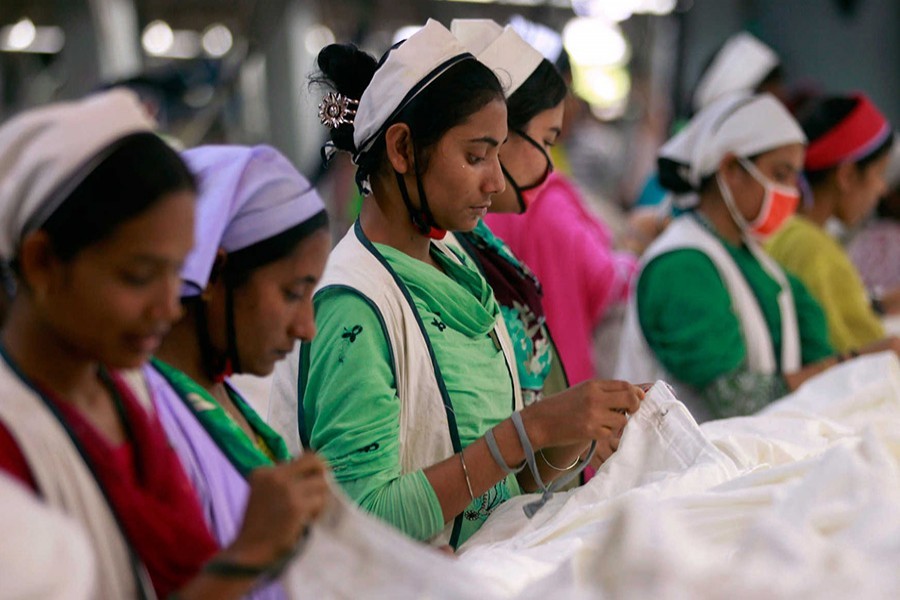
Published :
Updated :

Long working hours is one of the major challenges among other social compliance issues in the country's readymade garment sector, according to a new study.
Workers have to work for 12 hours a day mainly because of poor supply chain and infrastructure, insufficient utility services and high rate of migration, it said.
Moreover, shorter lead time in the age of fast fashion is also liable for the excessive working and holiday work, it revealed.
Mohammad Hasan, executive director of Babylon Group, a leading garment exporter, conducted a survey on 240 garment workers at Savar in March 2018.
"Usually, workers are supposed to work for eight hours a day. But due to overtime, they continue to work for 12 hours a day," Hasan said while presenting the findings of his study titled 'Readymade Garment Industries in Bangladesh: A Study on Social Compliance'.
The launching of the study findings was held at the department of public administration of Dhaka University, with Prof Akter Hossain as the chief guest.
Most of the garment workers employed in the factories in Savar areas came from Rangpur (47 per cent) and Rajshahi division (17 per cent), the study showed.
The span of service life in a particular factory is very short, Mr Hasan said, adding that from grade three to six, operators' retention in a particular factory is 2.04 years.
On the other hand, the gazette for minimum wage structure cannot serve as a complete guideline to determine the wage administration in the garment sector, he said.
The gazette itself created confusions and accelerated deprivation, Mr Hasan said, adding that workers are classified according to their grades and the factory management has the liberty to define grades according to their will.
Moreover, the study revealed that the grading system has many loopholes.
"These loopholes are helping the employers to manipulate in determining workers' grade," it said.
There are so many posts and positions required to run an RMG factory that are not mentioned in the gazette, Mr Hasan said.
All focus of the gazette falls on the entry-level workers and their wages. There is no guideline on how to measure workers' competency for a particular grade and for how long a worker will be retained in the same grade, the study said.
A worker of the same sector in the Export Processing Zone (EPZ) is getting more wages and benefits for the same work like tannery workers (Tk 12,800) and shipbuilding workers (Tk 16, 000) but a garment worker outside EPZs gets only Tk 5300, it added.
Despite their significant majority, women workers rarely get the supervisory and decision-making positions. Only 4.71 per cent supervisors and only one manager, out of the total 98 managers, are female, the study showed.
Mr Hasan also mentioned the rich history of country's Muslin clothes and how Bangladesh turned into the second largest supplier of garment items worldwide.
He said the garment sector is now a matured sector after a journey of four decades.
The study recommended forming a separate ministry for labour-intensive RMG sector for its sustainable development.
It also suggested developing a delegated authority and management system as a large number of foreigners are working in RMG and its associated sectors.
It recommended forming workers' participatory committees as best substitute for traditional trade unions and relocating factories to areas from where most of the workers are migrated.
munni_fe@yahoo.com


 For all latest news, follow The Financial Express Google News channel.
For all latest news, follow The Financial Express Google News channel.